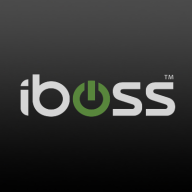


Atlassian Crowd and JumpCloud compete in identity and access management. While Atlassian Crowd stands out with its pricing advantage, JumpCloud's feature richness makes it a strong option for cloud-based directory needs.
Features: Atlassian Crowd supports third-party directory integrations, allowing for easy migration of user data. It provides comprehensive authentication and authorization options, along with user and group management across Atlassian applications. JumpCloud offers multi-platform support, enabling remote management of devices on Windows, macOS, and Linux. It integrates seamlessly with systems supporting SAML 2.0, providing centralized authentication for various platforms, and includes robust device and policy management features.
Room for Improvement: Atlassian Crowd could enhance its mobile device management capabilities and expand beyond the Atlassian ecosystem to support more applications. Improved scalability options would also benefit larger enterprises. JumpCloud may improve by providing more detailed documentation for complex setups and enhancing integration with traditional IT environments. Adding advanced reporting and analytics tools could also make it more beneficial for data-driven decisions.
Ease of Deployment and Customer Service: Atlassian Crowd offers easy deployment within the Atlassian ecosystem, providing a seamless experience for existing Atlassian users. JumpCloud's deployment is cloud-based, allowing intuitive and comprehensive IT management across platforms. JumpCloud is often praised for highly responsive customer service, adding value to its deployment processes.
Pricing and ROI: Atlassian Crowd is known for having a competitive pricing model that benefits organizations heavily invested in Atlassian products. JumpCloud may present higher initial costs, but it offers a substantial ROI through its extensive feature set and flexibility for scaling, making it attractive for businesses focusing on long-term infrastructure investments.


| Company Size | Count |
|---|---|
| Small Business | 6 |
| Midsize Enterprise | 6 |
| Large Enterprise | 5 |
| Company Size | Count |
|---|---|
| Small Business | 18 |
| Midsize Enterprise | 4 |
| Large Enterprise | 3 |
Iboss offers a comprehensive cloud-based security platform valued for its scalability and autonomous features, ensuring robust security with easy deployment and management capabilities.
Renowned for its robust security architecture, Iboss integrates seamlessly within diverse networks, delivering efficient granular filtering and advanced content categorization. Its single pane of glass console provides ease of management, allowing rapid scalability suitable for rapidly deploying environments. Operates in BYOD setups due to inline filtering without device installation. Integration with cloud-based applications enhances user control, and features like SASE, SSL inspection, and ChatGPT risk protection stand as highlights. Despite its strengths, users have pointed out areas for enhancement like direct navigation in reports, SSL decryption, and better cloud integration while having room to improve data loss prevention.
What are the most important features of Iboss?The usage of Iboss spans educational institutions, specifically K-12, to enforce internet policies, protect data, and support remote work environments. It provides web filtering and security frameworks to ensure safe browsing. Its platform-as-a-service model offers flexibility for both cloud-based and on-premises requirements, integrating seamlessly to deliver enhanced security features suitable for various deployment needs including zero trust, CASB, and network security for work-from-home setups.
JumpCloud offers efficient device management, single sign-on, and integration capabilities. It integrates seamlessly with Microsoft 365 and Google Workspace, streamlining user management across diverse environments.
JumpCloud delivers device, user, and application management across platforms like Windows, Mac, Linux, and cloud services such as AWS and Azure. Acting as a cloud-based directory, it facilitates single sign-on and identity access management, making it an attractive replacement for Active Directory and LDAP directories. Its policy management and centralized directory simplify user and device administration, offering a user-friendly interface with flexible access control and remote management. Organizations can experience streamlined onboarding and offboarding processes, robust authentication, and scalability. Despite being powerful, room for improvement is noted in alert capabilities, comprehensive MDM for Windows, multi-tenant features, and API reliability.
What are the key features of JumpCloud?Companies across industries utilize JumpCloud for comprehensive management of devices and user identities. It is especially beneficial in technology-driven sectors where centralized directory services replace traditional Active Directory and LDAP models. Organizations employing platforms like AWS and Azure find it essential for maintaining efficient and secure access management.
We monitor all Single Sign-On (SSO) reviews to prevent fraudulent reviews and keep review quality high. We do not post reviews by company employees or direct competitors. We validate each review for authenticity via cross-reference with LinkedIn, and personal follow-up with the reviewer when necessary.